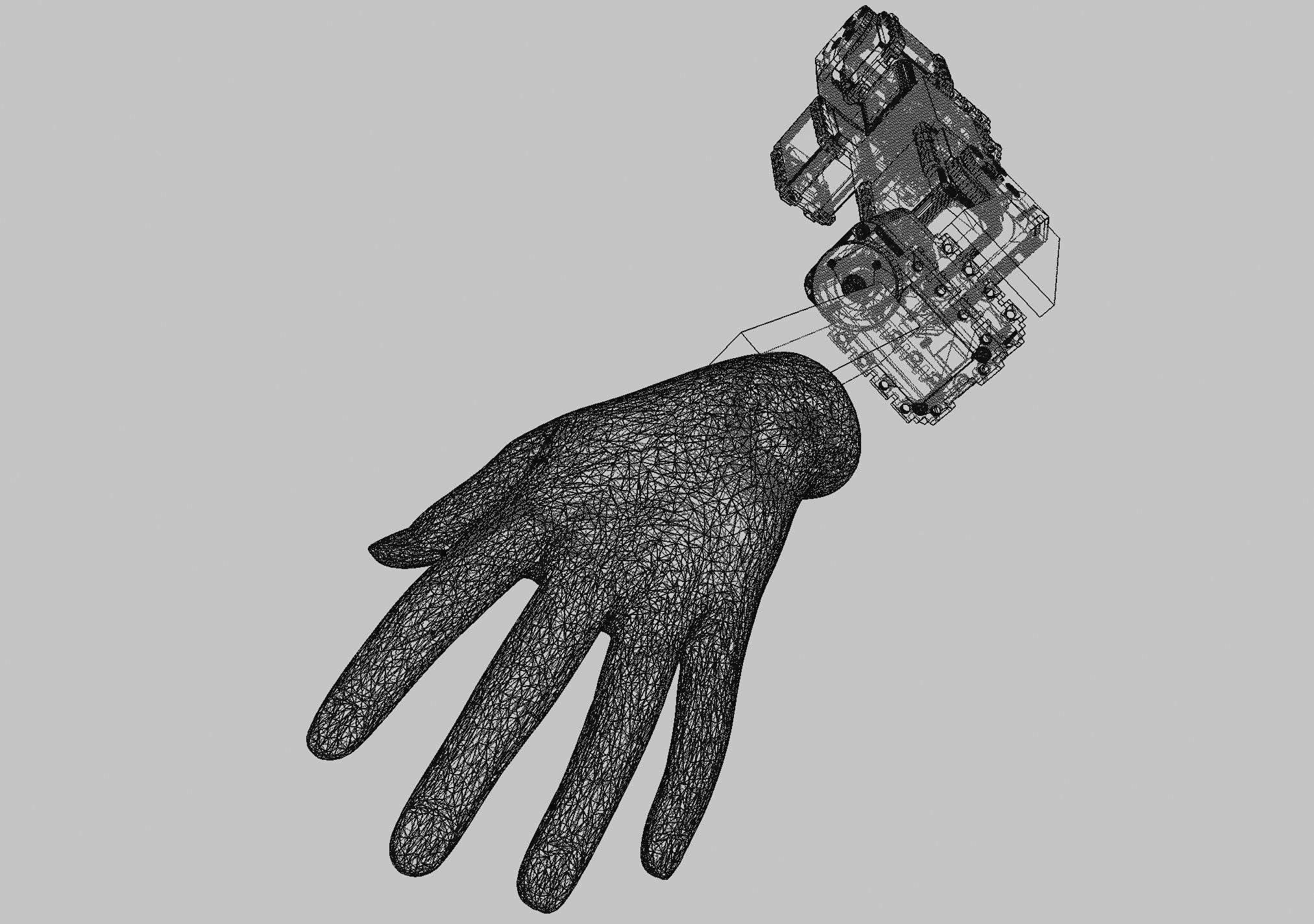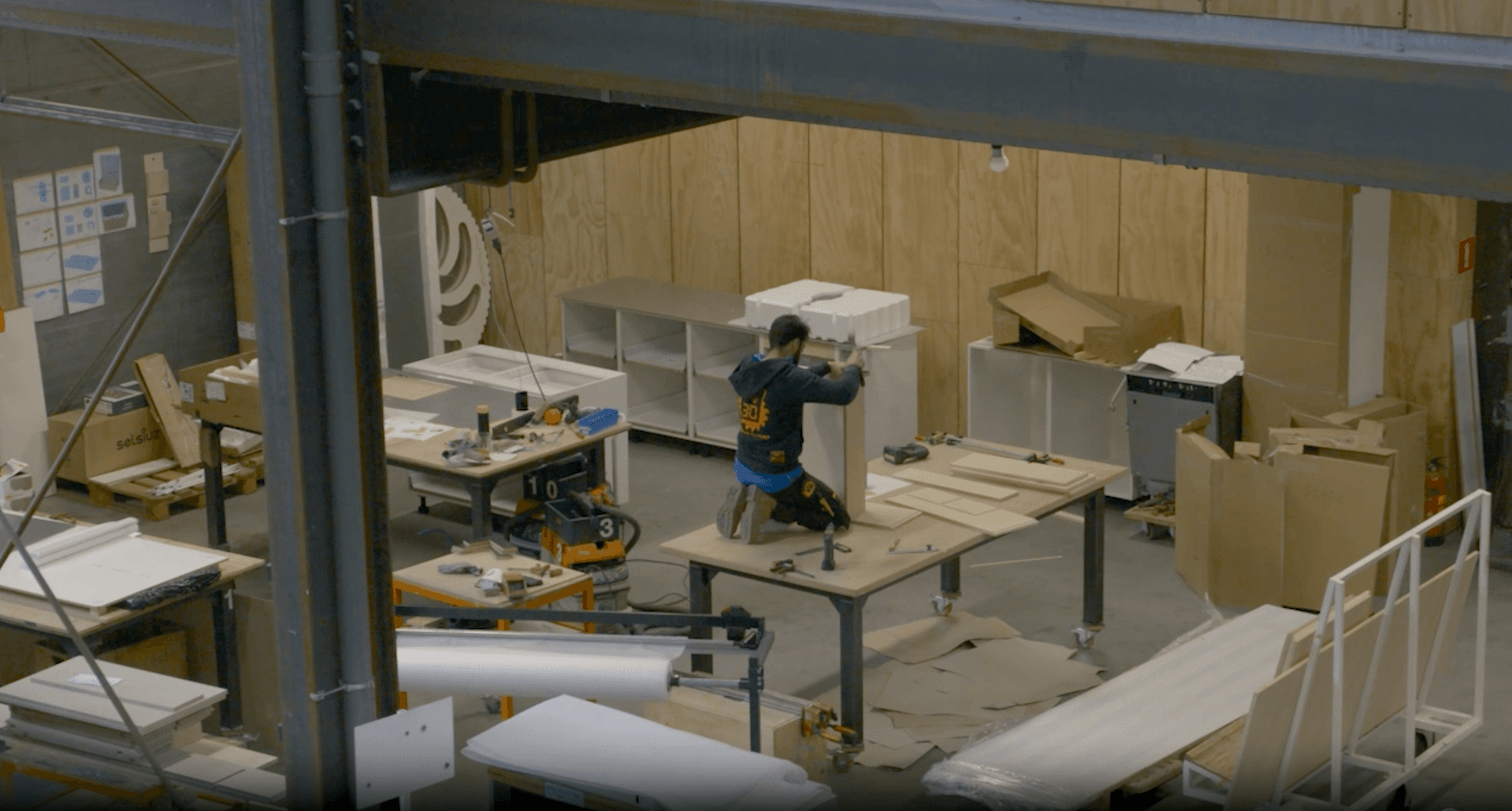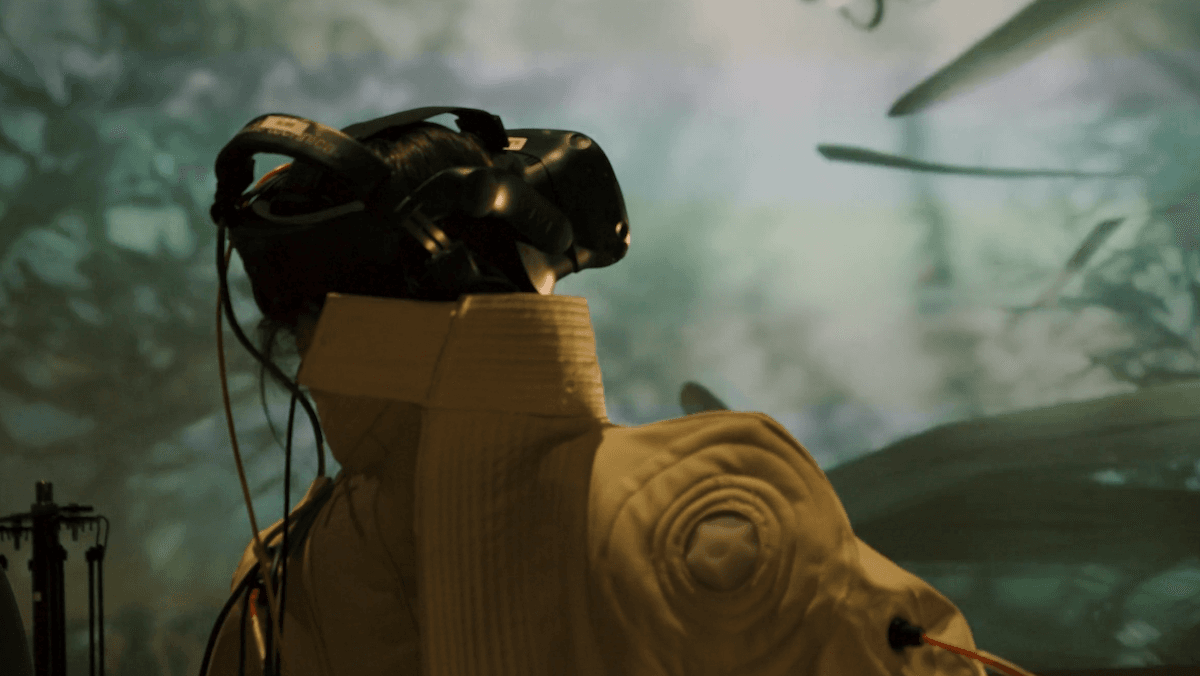This is an online meetup on Thursday 2 July. Please register through the button down below.
Attendance is free.
Did you register for the event? Join the meetup through the button.
Password: 1234
Artists Anna Dumitriu and Alex May recently completed a S+T+ARTS Residency to develop their project Cyberspecies Proximity, in collaboration with Schindler and Lucas Evers of Waag.
The artists worked with the New Technologies team at Schindler at their headquarters in Luzern and at their lab at EPFL Innovation Park in Lausanne in Switzerland. The project focussed on Schindler’s Human Robot Co-Mobility project which inspired their explorations of what it might mean to share our cities, sidewalks, and transport systems with intelligent embodied robots.
The Cyberspecies Proximity robot combines the way-finding technologies used in delivery- and maintenance robots, with an ability to communicate and manipulate our emotions through body-language, embodied in a delicate humanoid form. The work challenges audiences to confront the technological, ethical, and societal questions raised by the advent of urban socially-aware robots.
During their S+T+ARTS Talk at Waag on 2 July, both artists will explain their research in collaboration with Schindler and present their robotic works. After the presentation there is a Q&A moderated by Lucas Evers.
Programme
19.30 hrs - Introduction of STARTS, the residency and the speakers by Lucas Evers (Waag)
19.40 hrs - Cyberspecies proximity presentation by Anna and Alex
20.10 hrs - Reflection on the work and collaboration by Eric Howard Way
20.20 hrs - Conversation / discussion between the speakers, moderated by Lucas Evers, followed by a Q&A with audience
21.00 hrs - Conclusions and announcement of next weeks S+T+ARTS Talk
Dumitriu and May are pioneers in creating robotic artworks that performatively explore our relationships to new technologies. From HARR1, their constantly moving humanoid robot which exhibits body language and boredom, to Antisocial Swarm Robots which make explicit the human need to project life-like behaviour on robots and explore our audience’s inability to deconstruct even the simplest algorithms. Since 2011, the artists have worked collaboratively on digital and robotics projects (alongside their extensive solo careers) and have an international exhibition profile at galleries and museums including ZKM, Ars Electronica and HeK Basel.

The Cyberspecies Proximity robot is able to move around an exhibition space using a predefined map, created using SLAM technology combined with an Intel RealSense Tracking Camera sensor. It reacts and responds to the body language of audience members through a multi-layered face, skeleton, body and movement tracking algorithm, connected to an Intel RealSense Depth Camera sensor. The artwork was programmed in C++ and FUGIO, the Open Source Visual Programming System created by Alex May.
The artists have also been inspired by the methodologies of the construction industry and have developed a ‘digital twin’ of the robot, a virtual screen/wall-based version that can be exhibited in settings where a mobile robot is not practical. The digital twin is an accurate virtual model of the physical robot, created using the same 3D CAD assets used to build the robot, including precision models of all the motors in their various forms, the metal frame underpinning the form and the 3D designs of the head and hands.
The project forces Anna Dumitriu and Alex May to consider issues of ownership of public space, as well as the broader ethical implications of how we design robots and behave towards them. The work challenges audiences to confront the technological, ethical, and societal questions raised by the advent of urban socially-aware robots.
About the speakers
Anna Dumitriu is a British artist who works with BioArt, sculpture, installation, and digital media to explore our relationship to infectious diseases, synthetic biology and robotics. She has an extensive international exhibition profile including ZKM, Ars Electronica, BOZAR, The Picasso Museum, The V & A Museum, Philadelphia Science Center, MOCA Taipei, LABoral, Art Laboratory Berlin, and The Museum of the History of Science Oxford. She was the 2018 President of the Science and the Arts section of the British Science Association and holds visiting research fellowships at the University of Hertfordshire, Brighton and Sussex Medical School, and Waag, as well as artist-in-residence roles with the Modernising Medical Microbiology Project at the University of Oxford, and with the National Collection of Type Cultures at Public Health England. Dumitriu is a renowned speaker and has presented her work at venues including TATE Modern, Princeton University, Imperial College, La Musee de la Chasse et de la Nature, The Mendel Museum and UCLA. Her work is featured in many books including “Bio Art: Altered Realities” published by Thames and Hudson in 2016 and many other significant publications across contemporary art and science including Artforum International Magazine, Leonardo Journal, The Art Newspaper, Art Quarterly, Nature and The Lancet. Dumitriu’s work has a strong focus on the ethical implications of emerging technologies drawing threads across time, exploring future scenarios by reflecting on the past.
Alex May is a British artist creating digital technologies to challenge and augment physical and emotional human boundaries on a personal and societal level in a hyper-connected, software mediated, politically and environmentally unstable world. He works with light, code, and time; notably algorithmic photography, robotic artworks, video projection mapping installations, interactive and generative works, video sculpture, performance, and video art. Alex has exhibited internationally including at the Francis Crick Institute (permanent collection), Eden Project (permanent collection), Tate Modern, Ars Electronica (Austria), LABoral (Spain), the Victoria & Albert Museum, Royal Academy of Art, Wellcome Collection, Science Museum, Bletchley Park, One Canada Square in Canary Wharf, the Museum of Contemporary Art in Caracas (Venezuela), the Science Gallery in Dublin, Princeton University, University of Calgary (international visiting artist 2016), Texas A&M University, and the Beall Center for Art + Technology, University of California, Irvine. Alex is a Visiting Research Fellow: Artist in Residence with the School of Computer Science of University of Hertfordshire, and a Digital Media Arts MA sessional lecturer at the University of Brighton.
Eric Way has been Head of Inclusion and Diversity for Schindler Group since January 2020. He works to implement strategies to improve gender balance and the diverse mix of employees in the company. Originally from the US, Eric came to France in a student exchange program during university and then decided to stay. He began his professional life as an aerodynamics engineer in truck cab design at the Renault Trucks Division of Volvo Group. After 23 years in various roles in product development and product planning, he followed a passion for human development and became global Director of Diversity and Inclusion. He promotes a creative problem solving approach to I&D challenges with a focus on real world business impacts. Eric is based in Lyon, France.
S+T+ARTS Talks are part of the S+T+ARTS Prize program organised by Waag in collaboration with Ars Electronica and Bozar. The S+T+ARTS Prize is part of the S+T+ARTS program of the European Commission.
This project has received funding from the European Union’s Horizon 2020 research and innovation programme under grant agreement No 732019. This publication (communication) reflects the views only of the author, and the European Commission cannot be held responsible for any use which may be made of the information contained therein.



